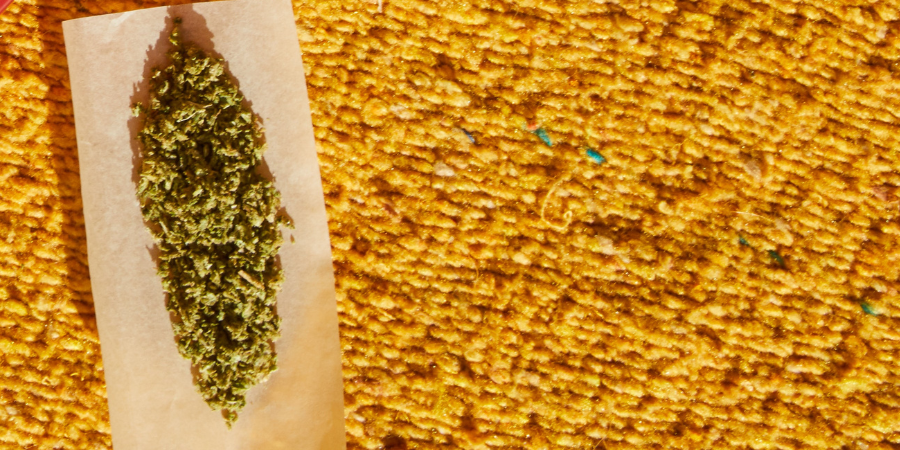Last Updated:
July 28th, 2025
Legal High Addiction | Symptoms, Causes and Types
Once upon a time, substances like cocaine and heroin were found in family medicine cabinets and methamphetamine was a solution for shedding a little extra weight. It may be hard to imagine such dangerous substances being so accessible now, but fast forward to today, and we see a similar pattern with “legal highs.” These are drugs crafted to sidestep regulations, mimicking the effects of illicit drugs under the guise of being safe and lawful. The reality is far from it as these substances wreak havoc, destroying lives and entire communities.
What are legal highs?
Known officially as New Psychoactive Substances (NPS), legal highs are drugs that have been created to produce effects similar to popular substances like cannabis, cocaine and ecstasy. They are created in labs to replicate the highs of these drugs while staying one step ahead of drug laws and regulations.
The label “legal” can be deceiving when it comes to legal highs. While it is true that many of these substances are initially not illegal, this is simply because they are new and not yet regulated. However, as soon as their harmful impacts become apparent, authorities act swiftly to ban them. In the UK, for instance, many drugs still commonly called “legal highs” have long been banned with serious legal penalties for use, supply and manufacture.
The addiction to legal highs has become a pressing issue across the UK. Recent statistics reveal that nearly 300,000 people received treatment for drug and alcohol issues in the year up to March 2023, with many cases linked to legal highs.
What is legal high addiction?
Legal high addiction is when you reach a point where you no longer have power over your legal high use. Legal highs can seem like the perfect way to enjoy yourself. They are generally cheap and easily available, and many believe (incorrectly) that they are legal. You might first try legal highs at a party, enjoy how they make you feel and make them a regular part of your nights out.
Initially, a little goes a long way, with small doses giving you a big buzz. However, tolerance soon starts to set it and before you know it, you may be doubling or tripling the dose for the drugs to work effectively.
As tolerance grows, so does dependence, and the legal highs you initially used just for fun on weekends become a daily necessity. If you try to skip a day or even a dose, you will be faced with a slew of ugly withdrawal symptoms ranging from intense anxiety to depression to overwhelming cravings.
These physical symptoms are tough, but the psychological grip is even tighter, with legal highs becoming necessary to sleep, get through work or feel okay. This becomes a cycle of drug dependency and abuse that spins harder each time you attempt to escape it.
Struggling with an addiction? If you are ready to seek help, reach out to us today, and a member of our compassionate team will help you find the best option for starting your recovery journey.
Common legal high addictions
Benzo-fury addiction
Even after its ban in 2013, Benzo-fury continues to pose a huge risk for addiction. Originally marketed as a safer alternative to MDMA, Benzo-fury can be incredibly dangerous due to its unknown contents and potent effects.
Spice addiction
Often mistaken for a safe cannabis alternative, Spice abuse can cause severe psychological reactions and physical harm. Spice addiction is quickly becoming a public health emergency in some areas of the UK with huge damage being done to entire communities.
Kava addiction
Kava is a sedative derived from the Piper methysticum plant and is commonly taken as a herbal remedy. It has been banned in the UK since 2003 over concerns it causes liver poisoning and could potentially be habit-forming.
Mephedrone addiction
Mephedrone exploded onto the UK scene in 2009 with its intense, cocaine-like high making it a popular party drug. However, the risk of both addiction and fatal overdose quickly became apparent, and while mephedrone was banned in 2010, it is still widely available in the UK.
Methylone addiction
Methylone is from the same family as mephedrone, with similar dangerous effects. It was also banned as part of the UK government’s clamp down on legal highs but many people still abuse and become addicted to methylone.
What are the signs of legal high addiction?
There are some important signs that may point to the need for professional help for legal high addiction. Some of the most notable addiction signs and symptoms to be wary of include:
- Slowly increasing the amount of legal highs needed for satisfaction
- Disregarding health problems and other side effects of legal high use
- Concern from loved ones met with denial about your usage
- Starting your day with legal highs to avoid withdrawal symptoms
- Draining finances to sustain your legal high habits
- Hiding the true extent of your consumption from those around you
- Continuing to use legal highs even though you know something is wrong
What causes a legal high addiction?
It is important to understand that legal high addiction isn’t just about the drugs’ effects; it may also be already encoded in your genes. Children of parents with addiction problems are often at higher risk themselves, not just from environmental influences but possibly because their bodies react more readily to legal highs.
Turning to legal highs for quick relief from mental health issues like depression or anxiety can also fast-track addiction. Legal highs might momentarily numb symptoms, but addiction often fuels the flames of the underlying conditions, trapping you in a cycle of dependency and deteriorating mental health.
Living in areas fraught with economic challenges or high levels of stress can also push people towards using legal highs as a coping mechanism. As with mental health disorders, however, legal highs are never an effective coping solution, and addiction often takes root as reliance grows.
The mental and physical dangers of a legal high addiction
Different legal highs carry different health risks but all can be incredibly harmful, both physically and mentally.
Smoking legal highs like Spice can cause irreversible harm to lung function while snorting Benzo-fury and other powders can massively damage your nasal and throat lining. The stimulant effects of many legal highs can also put an immense strain on your heart, increasing the risk of developing lifelong cardiovascular conditions or experiencing emergencies like heart failure.
The mental effects of legal highs can be just as dangerous, causing a disturbing blend of paranoia, severe anxiety and vivid hallucinations. Legal high addiction can worsen any existing mental health disorders and even spark new ones.
Legal high overdose is also a potentially fatal risk, depending on the substance. This is partly because of the drugs themselves but also because of the unknown chemicals often added to the mix to get around drug laws or increase profits.
How to help someone with a legal high addiction
Breaking the grip of legal high addiction requires a structured legal high detox programme where medical experts monitor and guide you through the withdrawal process. Professional support is essential to soften the intense withdrawal symptoms, which can be both physically and psychologically overwhelming.
True healing begins when you delve into the root causes of your addiction through comprehensive legal high rehab. Whether you opt for a private centre or NHS-funded services, expert consensus is that an inpatient programme offers the most comprehensive support. Inpatient rehab provides a secure environment away from everyday stressors where you can fully engage in therapy and start to rebuild your life.
Where to get help for legal high addiction
At Addiction Helper, we understand that every recovery journey is unique. We offer personalised advice to help you choose the best legal high addiction treatment options for you.. Contact us today to discuss your treatment needs and we can connect you with the perfect rehab centre for your recovery.
Our compassionate team are ready and available to take your call, and guide you towards lasting the lasting addiction recovery you deserve.
Frequently Asked Questions
(Click here to see works cited)
-
- UK Rehab. “Spice Addiction | Causes, Symptoms and Diagnosis.” UK Rehab, https://www.uk-rehab.com/legal-high-addiction/spice/. Accessed 6 February 2025.
- GOV.UK. “Legal Highs.” GOV.UK, https://assets.publishing.service.gov.uk/media/5a79849d40f0b63d72fc679a/legal-highs-postcard.pdf. Accessed 6 February 2025.
- Office for National Statistics. “Deaths from ‘legal highs.’” Office for National Statistics, 28 April 2016, https://www.ons.gov.uk/peoplepopulationandcommunity/birthsdeathsandmarriages/deaths/articles/deathsfromlegalhighs/2016-04-28. Accessed 6 February 2025.
- UK Rehab. “Legal-High Addiction | Causes, Symptoms and Diagnosis.” UK Rehab, https://www.uk-rehab.com/legal-high-addiction/. Accessed 6 February 2025.
- Office for National Statistics. “Deaths related to drug poisoning in England and Wales: 2022 registrations.” Office for National Statistics, 19 December 2023, https://www.ons.gov.uk/peoplepopulationandcommunity/birthsdeathsandmarriages/deaths/bulletins/deathsrelatedtodrugpoisoninginenglandandwales/2022registrations. Accessed 6 February 2025.



